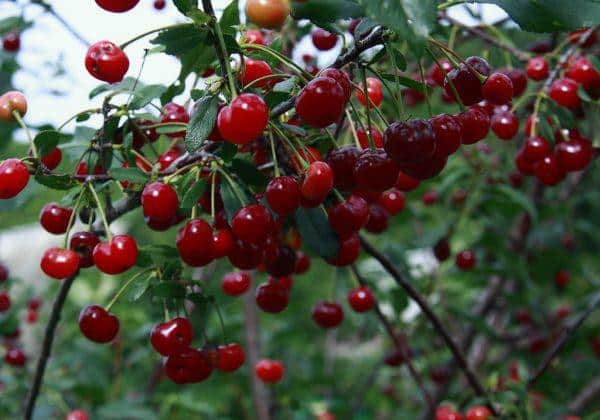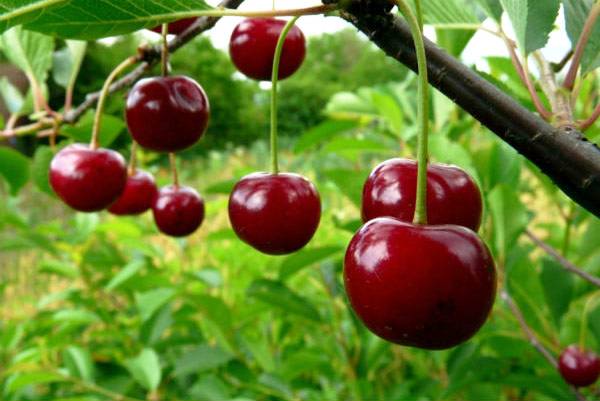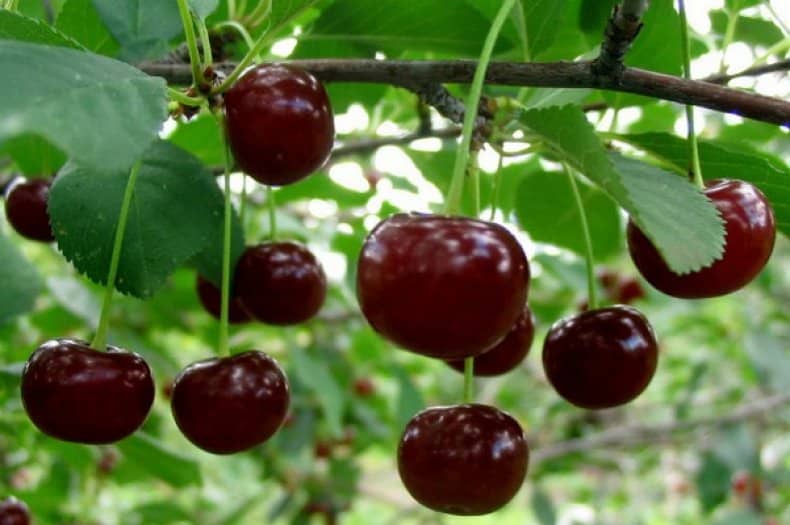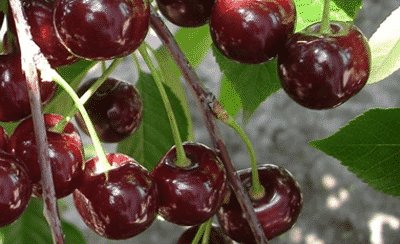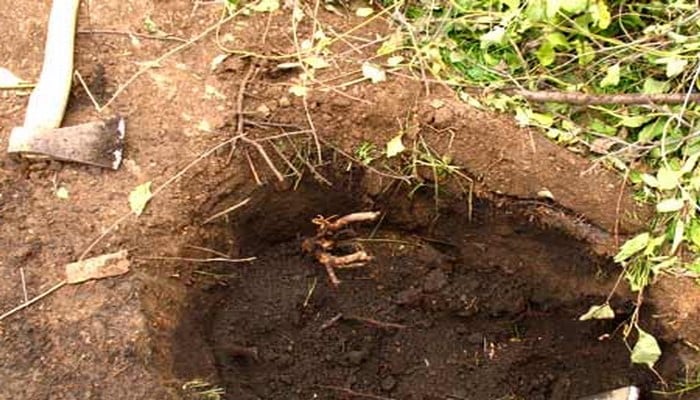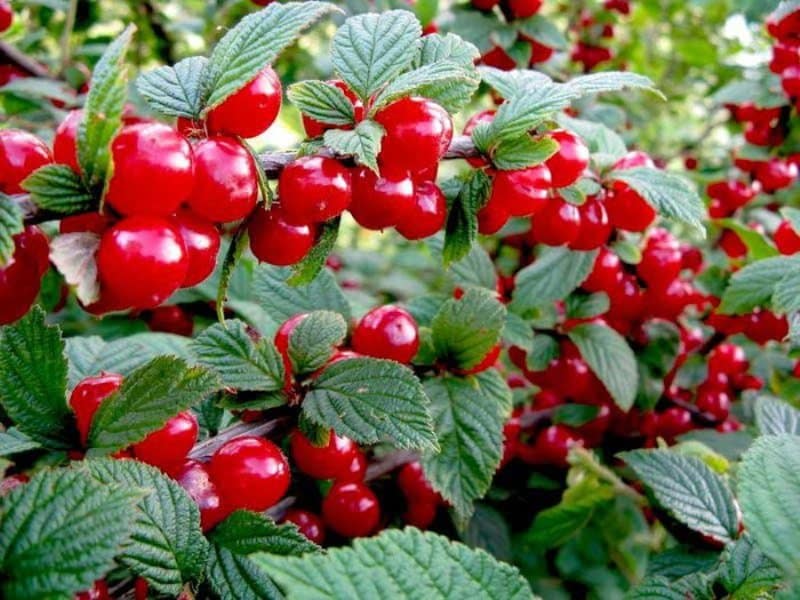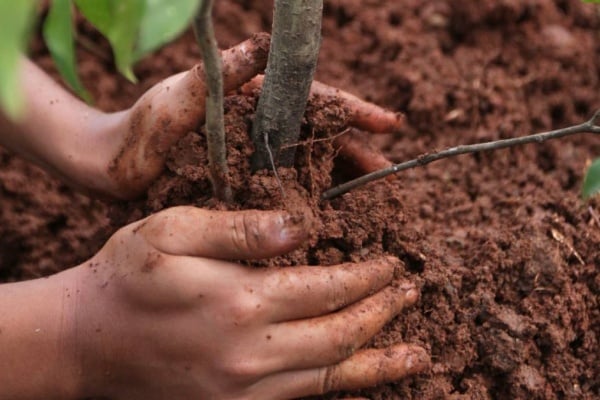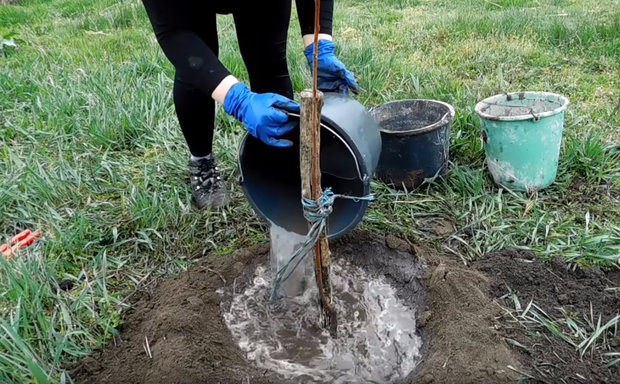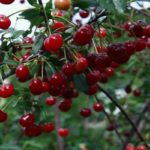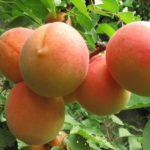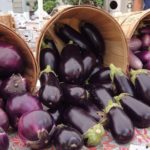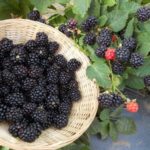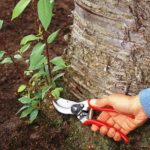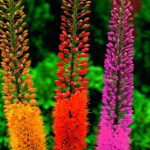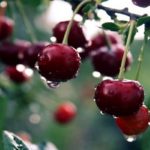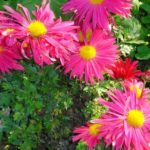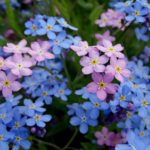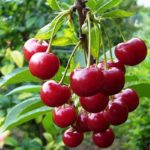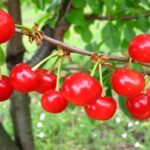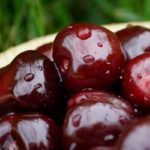A hybrid of garden cherry and shrub cherry Ashinskaya is the best variety in taste and aroma. Has an amazing vitality indicator. Always bears fruit well. The harvest is suitable for canning and is very tasty fresh. Due to its varietal characteristics, it is popular among gardeners. Before planting, you need to study the description of the Ashinskaya cherry variety.
- History of selection
- Description of the variety
- Characteristics of the tree and fruits
- Drought and frost resistance
- Pollination, flowering period and ripening time
- Productivity, fruiting
- Resistance to diseases and pests
- Advantages and disadvantages
- Landing Features
- Deadlines
- Choosing a suitable location
- What can you plant nearby?
- Selection and preparation of planting material
- Planting stages
- Care
- Watering
- Top dressing
- Trimming
- Diseases and pests
History of selection
The spontaneous hybrid was created by crossing steppe and garden cherries. The name was given in honor of the regional center in the Chelyabinsk region called Asha. In 2002, the variety was included in the State Register of the Ural region.
Description of the variety
Thanks to its wild relative, the Ashinsky hybrid inherited frost resistance and hardiness, which allows the variety to be grown in any part of the country.
Description of the variety:
- the plant is slender, fast growing;
- shoot length 30-45 centimeters;
- maximum height 2.5 meters;
- bears fruit for 30 years;
- shoots are oval, without fluff;
- in inflorescences there are 5 flowers;
- lentils are medium in size;
- the bud is smooth, long, slightly curved;
- the flowers grow small and white;
- the peduncle is 25 millimeters long;
- flowers do not tolerate frost and die at -2 °C.
Pyramid cherry has a dense crown with dark, green leaves.
Characteristics of the tree and fruits
The plant belongs to a productive and winter-hardy variety that ripens late. Average life expectancy is 35 years. Used for private gardening and on an industrial scale.
Drought and frost resistance
Main characteristics:
- tolerates drought well;
- withstands frosts down to -42 °C;
- flowers do not tolerate frost well.
When damaged by frost, the plant quickly recovers without losing productivity.
Pollination, flowering period and ripening time
The variety is partially self-fertile. The harvest ripens almost simultaneously in the first ten days of August. If there are no pollinators nearby, on average only 35% of the ovaries are fertilized. To increase productivity, it is recommended to plant any stone fruit crop with the same flowering period nearby.Flowers appear at the end of May. Flowering is extended.
Productivity, fruiting
From the fourth year, the plant begins to bear fruit regularly, and this continues until at least 30 years of age. The fruits ripen together. An adult tree produces about 10 kilograms of juicy berries.
Resistance to diseases and pests
The variety has increased resistance to coccomycosis. Not attacked by pests.
Advantages and disadvantages
Disadvantages include:
- poor transportability;
- late maturation;
- simultaneous maturation.
Advantages:
- resistance to pests and diseases;
- long fruiting;
- abundant yield;
- drought tolerance;
- high taste qualities;
- large fruits;
- the plant reproduces in any way.
With heavy rainfall, the berries crack.
Landing Features
It grows into a tall and beautiful tree. Before planting, you need to study the characteristics of the plant.
Deadlines
The ideal time is spring, when the snow has completely melted and the buds have not yet bloomed. This happens around the beginning of April. At a later date, seedlings take root worse. The plant is not planted in autumn.
Choosing a suitable location
An adult tree cannot be transplanted to a new location. Since the variety does not tolerate transplantation, there is a high probability that it will die. The plant does not like cold winds, so it is recommended to plant it on the south side of the house or fence.
Prefers light soil with neutral acidity.
What can you plant nearby?
Not all cultures live well side by side. Ideal to plant:
- cherries;
- cherries (any variety);
- plum
The following cannot be grown nearby:
- currants;
- maple;
- sea buckthorn;
- oak;
- raspberries;
- linden;
- gooseberry.
Recommended crops are planted at a distance of at least 3 meters.
Selection and preparation of planting material
When purchasing, pay attention to the following features:
- the root system should not be dry;
- there should be no damage to the plant;
- height about 1.5 meters;
- For a faster start to fruiting, purchase a two-year-old plant.
Before planting, the root system is soaked in water for at least two hours.
Planting stages
The hole is dug in the fall. Size 60 x 60 centimeters. A stake is driven into the center to support the plant. The soil is mixed with humus in equal proportions and the seedling is covered. The soil is compacted. The planting is filled with 30 liters of water. The circle around the trunk is mulched with humus.
Care
The plant does not require care. Follow simple recommendations.
Watering
Watering is carried out during drought.
Top dressing
Fertilize periodically. Use:
- peat;
- humus;
- wood ash.
They are introduced at the time of digging 3 times per season. The plant is not covered for the winter. Rodents do not touch cherry bark, so there is no need to take additional protective measures.
Trimming
Trim dried and damaged branches. The parts growing inside the plant must be removed. The shoots growing near the root are also cut off.
Diseases and pests
During the existence of the variety, no pests were identified. The disease is rarely affected.

